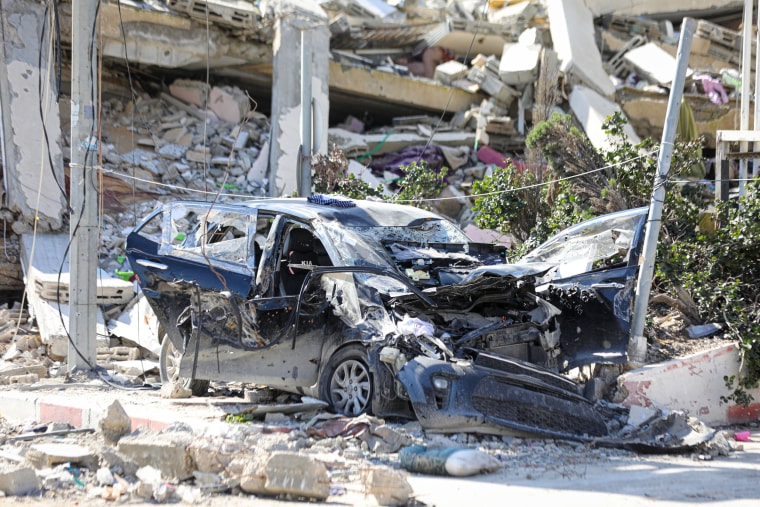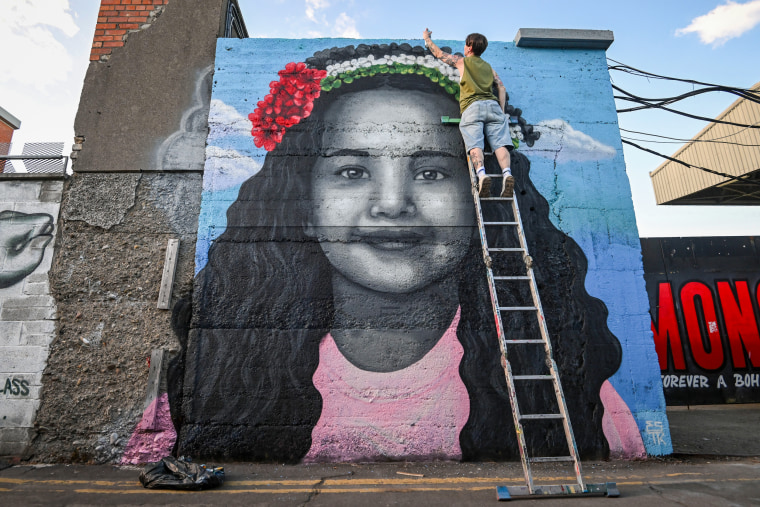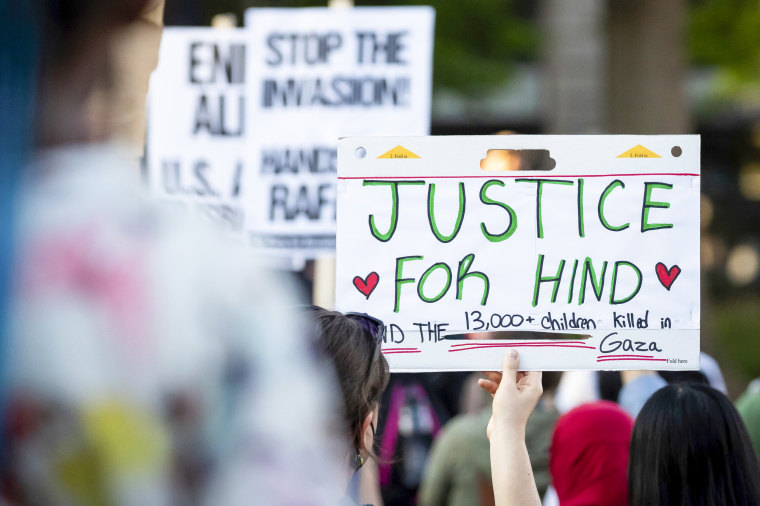Independent experts appointed by the United Nations Human Rights Council renewed calls on Friday for Israel to investigate the killing of 6-year-old Palestinian girl Hind Rajab, along with six members of her family and the two paramedics who tried to rescue her, in what the experts said “may amount to a war crime.”
Hind became one of the conflict’s most high-profile victims when, on Jan. 29, her final pleas over the phone to be saved were recorded by the Palestinian Red Crescent Society and heard around the world. Her case highlights the difficulty in bringing accountability for the deaths of civilians in Gaza.
The experts first raised the issue in a letter to the Israeli government on March 19, expressing alarm at the "apparently unlawful killing, of a seemingly targeted nature," and asked for information on what measures had been taken to conduct an "independent, impartial and transparent" investigation, and to ensure the protection of Gaza's civilian population.
The letter had received no response by July and, in "the absence of proper investigation and accountability," on Friday the experts issued a news release citing forensic analysis that show the car Hind was trapped in was shot at “from very close range using a type of weapon that can only be attributed to the Israeli forces.”
In response to a request for comment from NBC News on the allegations and on what measures the Israel Defense Forces had taken to investigate the case, the IDF said the incident was "under review," without providing further details.
The experts said the family members "were shot dead while fleeing," in what they said appears to be a “broader pattern of indiscriminate killings of civilians attempting to find shelter and escape the fighting in Gaza.”
Immediately following the incident, the IDF said that its troops were not in the area where Hind was killed, a claim the experts denounced as "unacceptable," given the evidence of Israeli munitions on the vehicle.

Hind and her relatives piled into the car following evacuation orders issued by the IDF in Arabic. As they tried to flee their neighborhood in Gaza City, they were "shot dead," according to the experts, leaving Hind the only one alive in the backseat of a car, trapped inside and surrounded by the bodies of her aunt, uncle, and four young cousins.
She spent hours on the phone with emergency services and her mother, begging to be rescued. Twelve days later, once the area became accessible to rescuers, she was found dead in the back of the car, less than 50 meters away from the charred and blown-out ambulance containing the remains of the two paramedics who were sent to rescue her.
Hind's 15-year-old cousin Layan Hamada, who survived the initial attack with Hind, had called emergency services and described tanks drawing nearer while on the phone. There was the sound of apparent gunfire, and Layan begins screaming before the line was cut. When the emergency services reached the phone again, Hind answered, confirming Layan was dead.

The experts said the brutality of these killings “illustrated how reckless the army has been in its Gaza campaign.”
Their statement has no legal bearing, and Israel alone is responsible for investigating such incidences, explained Emanuela-Chiara Gillard, a senior research fellow at Britain’s Oxford Institute for Ethics, Law and Armed Conflict.
"There's no international body that has jurisdiction over this particular incident," she added. "It's a long-standing shortcoming in the international system."
Critics say the Israeli military has a poor record of prosecuting allegations of its own misconduct. According to military data obtained by the Israeli rights group Yesh Din and reported by The Associated Press, between 2017 and 2021, less than 1% of soldiers were indicted out 1,260 cases of alleged offenses by Israeli soldiers against Palestinians. The data aligns with long-standing accusations by critics and human rights groups which say investigations into the killings of Palestinians by the IDF reflect a pattern of impunity.
According to Gaza health authorities, at least 39,000 people have been killed during the war and, while the data does not differentiate between civilians and combatants, at least 8,000 of those killed were children, according to the United Nations.

U.N. Human Rights Council-appointed experts said the deaths of Hind and her family were "not isolated cases," and cited last week's attack on a designated safe humanitarian zone, where at least 90 people were killed, according to Gaza health officials.
“Such attacks amount to grave violations of international humanitarian law, must be promptly and reliably investigated, and should be severely punished,” the experts said, urging the Israeli government to allow international human rights monitoring bodies and independent experts into Gaza to ensure that any “violations of international law” could be credibly investigated.
“The willful or indiscriminate killing of protected persons, including civilians, medical personnel and humanitarian workers, amount to war crimes, and if systematic, crimes against humanity, and should be prevented at all costs,” they said.